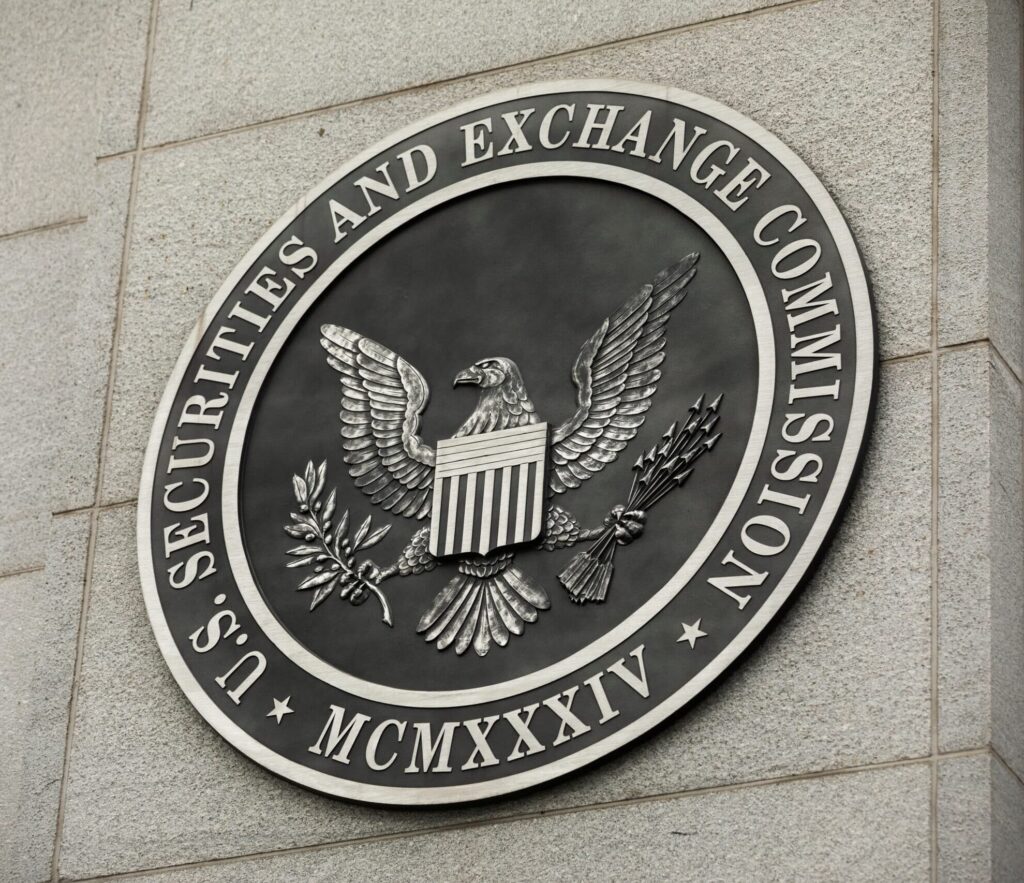
Three industry advocacy groups, as well as Coinbase, also filed friend-of-the-court briefs, seizing the opportunity to address SEC overreach as a whole.
Plaintiffs say the SEC’s many actions against crypto projects have created a de facto policy without going through the required steps.
(Shutterstock)
Posted October 28, 2024 at 6:11 pm EST.
The DeFi Education Fund (DEF) took a big swing at the SEC’s aggressive regulation of crypto in a new lawsuit against the agency over airdrops last week, arguing that the SEC’s moves violate federal law. Three amicus briefs subsequently filed by other top crypto legal advocates, as well as Coinbase, highlight that the suit is being viewed as an opportunity to rein in what the DEF describes as a “regulatory assault.”
“The SEC decided that the vast majority of digital assets, which were long understood to not be ‘securities,’ now are securities,” claimed the DEF and co-plaintiff Beba, an apparel company based in Texas, in their brief filed last week. “The [Administrative Procedure Act] required that the SEC’s policy go through notice and comment and fall within its statutory authority, but the SEC’s policy did neither.”
The Administrative Procedure Act (APA) covers the process by which the SEC, as well as other federal agencies, develops regulations. Because the SEC has sued several individual companies distributing airdrops over the past three years, including Hydrogen Technology Corporation and various firms offering BitTorrent, without instituting a formal rule, the DEF argues that the agency is acting in violation of the APA. Meanwhile, the SEC claims that its enforcement actions have been covered by existing securities law.
The DeFi Education Fund and Beba’s lawsuit against the SEC is a pre-enforcement suit, meaning that the plaintiffs are seeking protection from the court ahead of a planned airdrop by Beba of its $BEBA token. Recipients of the token get discounts on store merchandise.
At this stage in the lawsuit, the plaintiffs are responding to demands from the SEC that the case be thrown out. The SEC had argued to the court that it was being sued for a “phantom” policy that did not exist, and that the plaintiffs had no legal standing.
First, on Friday, non-profit advocacy group Coin Center filed an amicus brief asserting that the DEF does in fact have legal standing in the case. According to Coin Center, the DEF plays “a crucial role in representing the collective interests of these diffuse communities, providing resources, strategy, and advocacy that individual developers could not muster alone.”
Read more: First Congressional Hearing on DeFi Highlights Divide Between Republicans and Democrats
Then, a joint amicus brief filed on Monday by The Blockchain Association and the Crypto Council for Innovation argued both that the DEF has standing as an advocacy organization representing the industry, and that the SEC’s policy of “regulation by enforcement has created a compliance minefield for digital asset market participants that extends well beyond airdrops.”
Crypto exchange Coinbase also filed an amicus brief on Monday, complete with a chart tracking what Coinbase claims are the SEC’s “conflicting statements” on digital assets. The brief also walks the court through Coinbase’s own experience facing enforcement actions from the SEC in multiple cases, arguing that the SEC flouted “core APA principle.”
In summary, the DeFi Education Fund, Coin Center, Blockchain Association, Crypto Council for Innovation, and Coinbase all argue that the host of enforcement actions against crypto projects for violating securities laws that the SEC has already pursued constitute enough of a track record to assume that Beba, too, would receive an enforcement action from the agency. If the court agrees, that would by itself constitute a win for the crypto industry.
Jake Chervinsky, Chief Legal Officer at the venture capital fund Variant, agrees with the plaintiff’s argument, though he has not filed an amicus brief himself. “The SEC has spent years waging a campaign of regulation by enforcement against the crypto industry motivated by a legal interpretation that should have gone through notice-and-comment rulemaking,” he said. “This lawsuit is a great way to challenge the SEC’s unlawful attack on the industry.”
The SEC is required to respond to the DEF and Beba’s brief by November 11, after which the court will decide whether or not to dismiss the case.
If the court does not dismiss the case, proceedings will likely go on for several months before a final decision is reached.
Powered by WPeMatico



